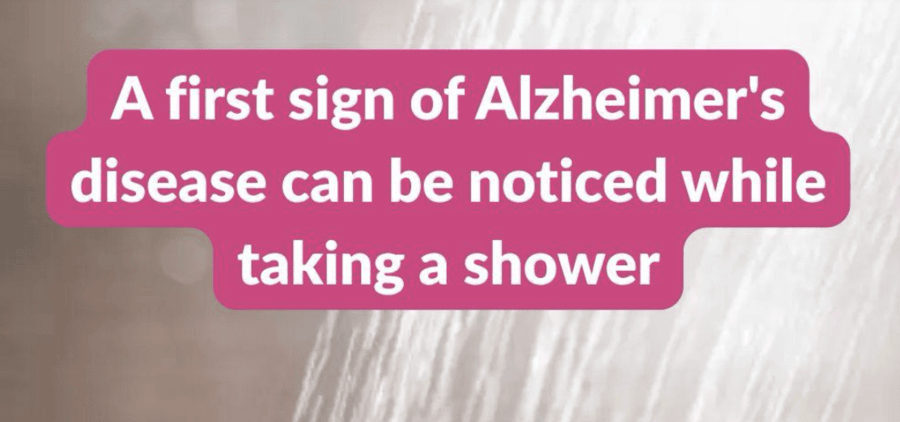When Alzheimer’s disease comes to mind, thoughts often turn to memory lapses and disorientation. Yet, emerging studies reveal that a subtle shift in daily experiences—specifically, a weakened sense of smell during moments like showering—could serve as an early signal of this neurodegenerative disorder.
The Vital Role of Smell in Brain Function
The sense of smell, known as olfaction, does more than allow us to savor delightful fragrances; it’s deeply tied to brain processes and memory. The olfactory system connects directly to the hippocampus and amygdala, brain regions critical for memory and emotional regulation. This intimate connection suggests that changes in how we perceive smells may reflect underlying shifts in brain health.
In Alzheimer’s disease, the olfactory bulb and associated brain areas are among the earliest to show pathological changes. This can result in a diminished capacity to detect or recognize odors, a condition called anosmia. Remarkably, this sensory change can appear years before more noticeable cognitive symptoms emerge.
Showering as a Smell Checkpoint
Think about your daily shower. The familiar aroma of your preferred soap or shampoo offers more than comfort—it acts as a subtle gauge of your olfactory health. If you find these scents less vivid or completely undetectable, it could signal something beyond a fleeting sensory issue.
Research indicates that trouble identifying everyday odors, such as soap, smoke, or food aromas, may hint at early cognitive decline. A study with over 1,000 participants showed that those who performed poorly on smell identification tests were more likely to experience cognitive challenges over time.
The Research Behind Olfactory Testing
An eight-year study by the University of Chicago tested participants’ ability to identify 12 familiar scents. Those with lower scores on these tests faced a higher risk of developing Alzheimer’s disease. This straightforward, non-invasive test proved effective in predicting cognitive decline.
Dr. Jeffrey Motter, a co-author of the study, highlighted the value of including olfactory evaluations in routine health check-ups. Due to their simplicity and affordability, such tests could become a standard tool for early Alzheimer’s screening, enabling earlier interventions.
When to Seek Professional Guidance
While temporary smell loss can stem from common issues like colds or sinus problems, a persistent inability to detect familiar odors calls for medical evaluation. If you or someone close to you repeatedly struggles to recognize everyday scents, particularly alongside other minor cognitive shifts, consulting a healthcare provider is wise.
Early identification of Alzheimer’s disease is essential. Interventions tend to be most effective in the disease’s early stages, potentially slowing its progression and enhancing quality of life.
Additional Early Signs of Alzheimer’s
Beyond changes in smell, other early indicators may point to the onset of Alzheimer’s disease:
- Memory Gaps: Forgetting recently acquired information or significant dates.
- Challenges with Routine Tasks: Struggling with familiar activities like cooking or handling finances.
- Disorientation with Time or Place: Losing track of dates, seasons, or time’s passage.
- Visual and Spatial Difficulties: Trouble with reading, judging distances, or perceiving color contrasts.
- Social Withdrawal: Stepping back from social events or hobbies.
- Mood and Personality Shifts: Becoming confused, suspicious, depressed, fearful, or anxious.
Noticing these signs early can prompt timely medical assessments and care planning.
Supporting Brain Health Through Lifestyle
While factors like age and genetics are unchangeable, certain lifestyle practices can bolster brain health:
- Consistent Exercise: Engaging in regular physical activity to enhance blood flow to the brain.
- Nutritious Eating: Following a diet filled with fruits, vegetables, whole grains, and lean proteins.
- Cognitive Engagement: Stimulating the brain through puzzles, reading, or acquiring new skills.
- Social Connections: Maintaining robust social ties to support emotional health.
- Restful Sleep: Prioritizing adequate sleep to aid in clearing brain toxins.
- Stress Reduction: Using techniques like meditation or deep breathing to manage stress.
- Adopting these habits can foster cognitive resilience over time.
The Power of Smell as a Health Indicator
Our sense of smell is a remarkable, often overlooked window into brain health. Staying attuned to changes in olfactory perception, especially during everyday routines like showering, can offer early hints of cognitive shifts. By remaining proactive and observant, we can take meaningful steps toward early detection and management of Alzheimer’s disease.




